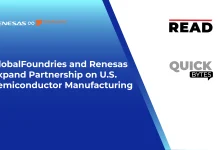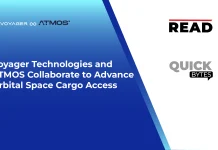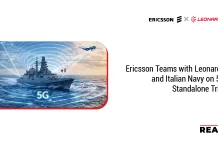IonQ, a leading quantum-technology company, has formalised a strategic partnership and made an investment in Heven AeroTech, a specialist in long-endurance hydrogen-powered unmanned aerial systems (UAS). Under the agreement, IonQ’s quantum computing, quantum networking, quantum sensing, and quantum security technologies will be integrated into Heven AeroTech’s advanced aerial platforms – enabling a new generation of drones tailored for national-security and mission-critical aerospace applications.
Heven’s existing technology features hydrogen-fuel-cell propulsion, enabling its systems, such as the Heven Z1, to fly long distances (up to approximately 600 miles) and remain airborne for more than 10 hours. By embedding IonQ’s quantum capabilities – for example quantum sensing for alternative navigation and quantum networking for ultra-secure communications in contested or GPS-denied environments – the partnership aims to deliver UAS hardware that can operate with unprecedented resilience, stealth, autonomy and mission performance.
Niccolò de Masi, Chairman and CEO of IonQ, commented: “By integrating IonQ’s world-leading quantum technologies, Heven AeroTech will deliver a new class of unparalleled UAS capabilities.” Meanwhile, Ben Levinson, Founder and CEO of Heven AeroTech, emphasised that the partnership will allow them to push the boundaries of endurance, autonomy and security in ways previously thought impossible.
Implications for the Aerospace Industry
1. Quantum Technologies Meet Aircraft Platforms
The collaboration brings quantum innovations-computing, sensing, networking-into the physical aerospace domain. Quantum sensors are transforming navigation, timing, and imaging. This shift is significant for an industry based on classical electronics, avionics, and mechanics. Quantum-secure communications add to this transformation. It shows a shift to quantum-enabled aerospace systems. This move goes beyond just upgrading older platforms.
2. Long-Endurance & Autonomy: A New Baseline
Heven’s hydrogen-powered drone platform already delivers impressive endurance and range. We are enhancing UAS capabilities by using quantum-enhanced autonomy and robust navigation. This is especially useful in GPS-denied or contested areas. Aerospace manufacturers should focus more on power systems, such as hydrogen and fuel cells. They also prioritize autonomous software solutions and advanced sensors. These elements are key to changing design needs.
3. National-Security & Defence Aerospace Shift
Since the announcement explicitly targets national-security applications, aerospace firms in the defence segment must note that future UAS designs will need to support not just airframe and propulsion, but also advanced quantum-hardened electronics, secure links, and mission-resilient autonomy. This raises the competitive threshold for primes, subsystems suppliers, and integrators in the aerospace/defence arena.
4. Ecosystem Effects & Innovation Pressure
Businesses operating across the aerospace supply chain – from fuel-cell systems to sensor manufacturers, AI/autonomy software providers, and secure communications vendors – will need to examine how quantum-capable platforms alter their product road-maps. The IonQ-Heven partnership may drive more firms to explore quantum sensors, quantum links and hybrid propulsion platforms to stay relevant in the emerging high-end UAS market.
5. Commercial vs Defence Duality
Our main focus is national security. Our technologies may also have future uses in commercial aerospace. These could include long-endurance surveillance, environmental monitoring, beyond-visual-line-of-sight inspections, and resilient communications networks. This dual potential opens market opportunities for aerospace companies. Those ready to invest early in quantum integration can benefit greatly.
Business Impacts for Aerospace-Related Companies
OEMs and Airframe Manufacturers: They need to gear up for new UAS platforms. These will have quantum sensors, secure links, long-endurance propulsion, and autonomous operations. Product specifications and design cycles may need to adapt accordingly.
Subsystem Suppliers (Sensors, Propulsion, Communications): Demand for suppliers will increase. This includes providers of fuel-cell systems, hydrogen storage, advanced avionics, quantum sensors, and quantum networking. New qualification requirements will also be introduced.
Software & Autonomy Companies: As quantum routing, navigation, mission planning, and sensor fusion grow, companies offering autonomy stacks or mission software need to adapt. They will face richer data, new sensor types, and quantum-aware designs.
Also Read: Envision and GES Collaborate on Energy Storage and Wind Expansion
Defense Programs & Primes: Primes with government contracts can gain an edge by using quantum-capable UAS. Engage early with quantum tech providers. Join demonstration programs and handle supply-chain challenges.
Commercial Aerospace and New-Space Firms: As quantum aerial systems grow, companies with long-endurance drones, data-collection tools, and edge-compute systems should take note. This trend could impact future products.
Challenges & Considerations
While the partnership is bold and forward-looking, several factors must be considered:
Maturity of Quantum Technologies: Quantum sensing and networking require time to become strong, flight-ready systems. They require thorough validation and certification.
Integration complexity: Combining hydrogen fuel-cell propulsion, long-endurance UAS operations, and quantum subsystems takes extensive engineering. It also demands careful system integration and a focus on reliability.
Cost and certification: Aerospace certification for national-security systems is stringent. Suppliers and integrators must ensure that new quantum systems are reliable, safe, and easy to maintain. They also need to meet lifecycle-cost requirements.
Regulatory & Export Control: Quantum tech and advanced UAS must follow export controls to ensure national security. They are also subject to ITAR regulations and defense industry policies.
Market readiness: Defence will drive adoption. However, the shift to commercial use relies on cost, return on investment, and reliability in stable settings.
Conclusion
The IonQ and Heven AeroTech partnership marks a new era for quantum-enabled flight systems in aerospace. This partnership combines long-endurance aerial platforms with quantum sensing, networking, and computing. This sets a new standard for unmanned systems. These systems will be more autonomous, resilient, and effective in challenging environments.
Aerospace companies say it clearly: the future of aviation and UAS goes beyond aerodynamics and propulsion. It will also include quantum sensors, secure communications, and hybrid architectures. Quick action in this area gives companies defense and commercial benefits.
The aerospace sector will likely experience quicker R&D. There will also be shifts in supply-chain dynamics. Plus, new partnerships may form between quantum tech providers, drone OEMs, and system integrators. As business models change from selling hardware to offering mission-capability services, using quantum-augmented aerospace could spark the next wave of flight.




